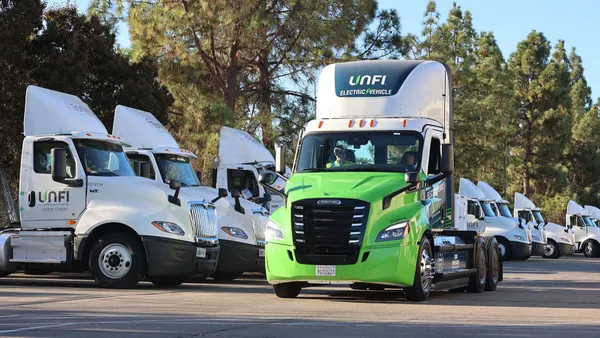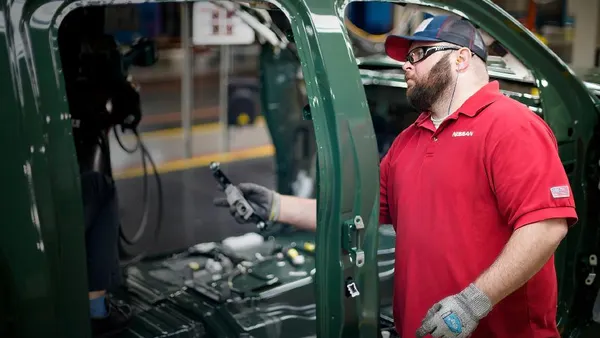Dive Brief:
- Samsung is enduring a massive recall of the Samsung Galaxy Note 7 due to reports that its batteries would spontaneously ignite while charging.
- The recall extends to 10 markets including South Korea and the U.S., where sales have also halted. Samsung's shares have dropped nearly 11% since the recall notice was put in place.
- At the heels of Samsung's quality slip up, Apple reportedly upped the production of the its new iPhone 7 by 10% in anticipation of increased orders following the product launches.
Dive Insight:
Samsung's rush to beat Apple in developing and marketing the newest smartphone paid off at first: in the three month period since the product's launch, the Galaxy Note 7 held a 22% market share compared to Apple's 12%, according to Fortune.
But like the tortoise and the hare, the faster company eventually lost out as it now faces a recall of 2.5 million devices. To make matters worse, the quality concerns are so severe that the Federal Aviation Administration recently put out a notice asking passengers to neither turn on, charge, or stow the devices while inside aircraft.
How did this happen?
"The supply chain in global vendors has escalated in complexity," Jason Dea, director of product marketing at Intelex told Supply Chain Dive while talking about the topic. "Rushing anything hit a deadline is challenging at best, fraught with error at worst."
Samsung's mishap then proves a powerful reminder for companies facing increased pressures for just-in-time production. Of course, pushing limits is a key tactic for many company's growth, but to do so requires increased investments in technology solutions to ensure formerly manual processes, like compliance, are efficiently processed, Dea added.














